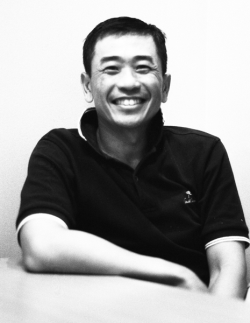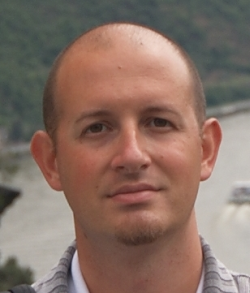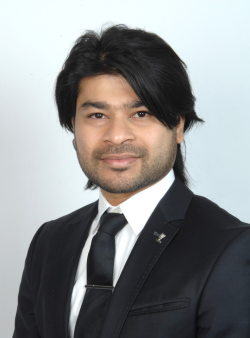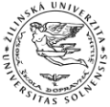Keynotes
AI and Games Technology
Abstract
Games playing has been an area of research and application in AI from its inception. In this talk, the author will address some of the state of art AI technology applied to Games and how games has transformed some of the AI research.
Short Biography
Professor Simon See is currently the Solution Architecture and Engineering Director and Chief Solution Architect for Nvidia AI Technology Center. He is also a Professor and Chief Scientific Computing Officer at Shanghai Jiao Tong University, Professor in Beijing University of Posts and Telecommunications (BUPT), and Professor in Universitas Indonesia (UI). He is being conferred as a Distinguished Fudan Scholar in September 2018 by Fudan University, Shanghai, China. Previously Professor See was also the Chief Scientific Computing Advisor for BGI (China) and has a position in Nanyang Technological University (Singapore) and King-Mong Kung University of Technology (Thailand).
Professor See is currently involved in a number of smart city projects, especially in Singapore and China. His research interests are in the area of High-Performance Computing, Big Data, Artificial Intelligence, Machine Learning, Computational Science, Applied Mathematics and Simulation Methodology. Professor See is also leading some of the AI initiatives in the Asia Pacific. He is a Steering Committee member of NSCC's flagship High Performance Computing Conference Supercomputing Asia (SCA) since March 2018.. He has published over 200 papers in these areas and has won various awards.
Professor See is also the member of SIAM, IEEE, and IET. He is also the committee member of more than 50 conferences.
Dr. See graduated from the University of Salford (UK) with a Ph.D. in electrical engineering and numerical analysis in 1993. Prior to joining NVIDIA, Dr. See worked for SGI, DSO National Lab. of Singapore, IBM, International Simulation Ltd (UK), Sun Microsystems and Oracle. He is also providing consultancy to a number of national research and supercomputing centers.

Senior Director
Nvidia AI Technology Center
An(other) overview of Procedural Content Generation Techniques applied to Game Design and Development
Abstract
In the context of video games, Procedural Content Generation (PCG) refers to the automatic creation of contents, performed using algorithms and/or heuristics that are generally designed specifically for the game under development. PCG can be exploited to produce different contents, depending on the video game genre and on the peculiarities of the specific game, with the positive effects of reducing development time and increasing randomness of content and/or gameplay. In this invited speech, we present the researches on PCG conducted in the PONG (Playlab fOr inNovation in Games) laboratory of the Department of Computer Science at University of Milan in the last years. In particular, we have focused our attention on the proposal of procedural-based tools aimed at an optimization of the design process of levels and/or large virtual worlds. Moreover, we have also exploited the characteristics of Evolutionary algorithms to propose novel methods to generate game contents
Curriculum Vitae
Davide Gadia has received his M.Sc. (2003) and Ph.D. (2007) in Computer Science from the University of Milan. Currently he is Assistant Professor at Department of Computer Science at University of Milan. His research interests concern mainly Computer Graphics, Video Game programming, Virtual Reality, and Digital Imaging. He is also interested in the processing of stereoscopic images and videos, and in the analysis of perceptual issues in the interaction with Virtual Environments. He is involved in the research activities of the Pong (Playlab fOr inNovation in Games) Laboratory.
AI at Heart: Experiences of a Mobile Game Developer
Abstract
Game AI is often discussed in terms of "research side", "industrial side" and "bridging the gap" between them. A game developer's perspective can be understood by looking at the role of AI in a game project within the context of other systems. Having a value of its own, AI must work in coordination with the rest of the game to provide a satisfying player experience. In this talk, I will discuss the challenges of building a game with "AI at heart", serving as a critical element of the whole project. We will see how the tasks of making a solid AI system and using AI to support other game elements entwine, and how our understanding of the role of AI evolved in the course of development of a mobile tennis game. I will also share some experiences and insights gathered on the road from the conception to the maturity of an independent game project.
Curriculum Vitae
Maxim Mozgovoy is an associate professor at the University of Aizu, Japan. He received his PhD degree in Applied Mathematics from St. Petersburg State University, and his PhD in Computer Science from University of Joensuu. His main research interests are focused on natural language processing and artificial intelligence for computer games. His current primary goal is to apply machine learning technologies to the task of practical game AI creation. Maxim has a solid academic record of over 70 published articles and industrial-level software development experience. In particular, he is the primary developer of a machine learning-based AI of the mobile tennis game World of Tennis: Roaring '20s.
Sustainable Resilient Gamified Digital Solutions for the Next Generation
Abstract
In the year 2020, human has experienced the COVID-19 recession and it is likely to be the worst global economic crisis since the Great Depression during the 1930s. This global situation is a dire warning and human-centric development is a must to balance the interest of the economy and environment i.e., it is all about the people to become more resilient.
Sustainability-oriented developments are vital to support sustainable consumption and creation (Buhl, 2019). This includes digital solutions more precisely services and applications for engaging users and relevant stakeholders and fulfilling their needs. The Service-Dominant Logic (Vargo and Lusch, 2016) is an excellent vehicle to propose key Value Propositions and implement them to co-create value and enhance the efficacy of the digital systems (Haque et al 2020).
Recently, gamification-based digital applications have drawn the attention of funding bodies, researchers, civil society, and it is projected to reach USD 30.7 billion by 2025 (Markets and Markets, 2021).
Academics have suggested to Digital Thinking as an approach for developing innovative and viable solutions to sustainability challenges. Nevertheless, to this point, the argumentation has largely been conceptual and less databased. Scholars (Brown and Wyatt 2010, Dewberry and Sherwin, 2002) pointed out the questions of design thinking from the perspective of sustainable digital solutions for the next generation. Furthermore, it is important to find the relevant stakeholders during the design and development of digital solutions as well as to assess the long-term effect of the solutions.
This talk will explain the importance of sustainability and role of digital design thinking with gamified applications and services, explains the way of how to design and develop zero/low cost-based sustainable gamified digital systems and teaches human-centred design techniques. This talk will cover the multidisciplinary research area such as merging social science and psychology, computer science, and the integration of business, medical and education technology.
Curriculum Vitae
Sanaul Haque earned his PhD in Medicine (Medical Physics and Technology) from the University of Oulu, MSc in Telecommunications from the QMUL (Queen Mary University of London), and BSc (Hons) in Business Information Systems from the UEL (University of East London). He has been conducting multidisciplinary collaborative research activities on how to design and develop Resilient Sustainable Digital Solutions towards Human Behavioural Change. He is the winner of Marie Skłodowska-Curie and the Government of Ireland Research Fellowship. He has secured important EU, Irish and Finnish funds to run research activities, and closely worked with relevant stakeholders to disseminate project outputs. He has authored/co-authored over 20 scientific articles such as CHI, JMIR Form Res etc.








